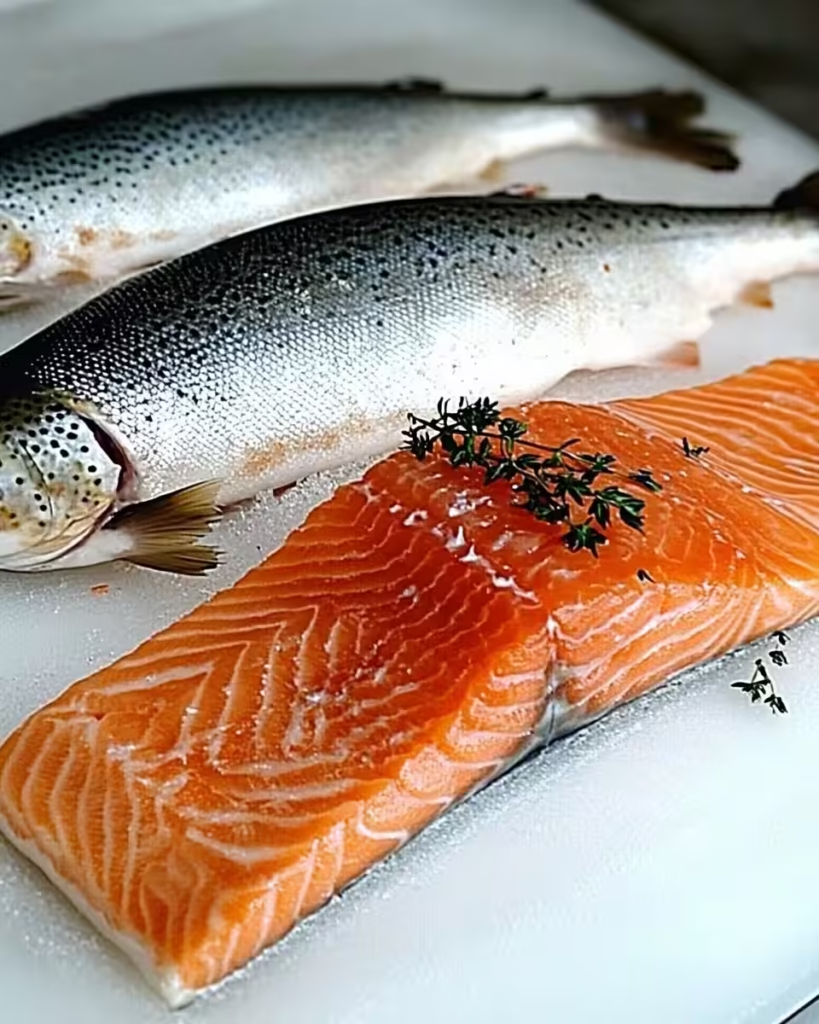Salmon is more than just a popular fish on sushi menus and grill platters—it’s a nutritional powerhouse with deep cultural and culinary roots. Whether smoked, seared, or folded into creamy pasta, salmon deserves a recurring role in your kitchen thanks to its rich flavor, versatility, and health benefits.
Origin and History
Salmon has long held a place of honor in the culinary traditions of coastal and riverine societies, particularly those in the Northern Hemisphere. Native to both the Atlantic and Pacific Oceans, salmon have an extraordinary life cycle: born in freshwater, they migrate to the ocean and return upstream to spawn in the very waters of their birth. This remarkable journey has captivated cultures for centuries and contributed to their spiritual and ecological significance.

In Indigenous cultures of the Pacific Northwest, salmon are revered not just as food, but as a symbol of renewal and sustenance. These communities built entire traditions and seasonal celebrations around the salmon run, where rivers filled with silvery bodies leaping upstream. Across the Atlantic, Scandinavian and Celtic communities have long enjoyed smoked salmon, a practice that dates back to the need for preservation before refrigeration.
In modern culinary contexts, salmon’s popularity spans continents. In Japan, it’s found raw in sushi or grilled in bento boxes. In France, you might encounter it poached and served with dill cream sauce. And in North America, it’s as common on the backyard grill as it is on upscale menus featuring cedar plank-roasted fillets.
With the advent of aquaculture, salmon has become more widely available year-round, though wild-caught varieties are still prized for their deep, nuanced flavor. Whether farmed or wild, salmon’s adaptability across cuisines and cultures underscores its global culinary appeal.
Nutritional Benefits
Salmon is often hailed as a superfood, and for good reason. It’s rich in high-quality protein and packed with essential nutrients that support everything from heart health to cognitive function.
One of its most notable features is its abundance of omega-3 fatty acids—particularly EPA and DHA. These healthy fats are crucial for reducing inflammation, improving brain function, and promoting cardiovascular health. Regular consumption has been linked to a lower risk of heart disease, improved mood, and even better sleep.

Salmon is also an excellent source of B vitamins, especially B12, which is vital for energy production and nervous system function. You’ll also find vitamin D—important for bone health and immune support—and selenium, a trace mineral that plays a key role in metabolism and thyroid function.
Its rich protein content aids in muscle repair and satiety, making it an ideal choice for those looking to build or maintain lean body mass. Plus, its vibrant orange hue, especially in wild varieties, comes from astaxanthin—a powerful antioxidant known to protect skin health and reduce signs of aging.
📌 Try it in this recipe: Salmon Fried Rice Recipe – A Savory One-Pan Delight
